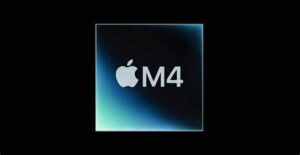Microsoft will end up with OpenAI one way or another.
- The best solution to the hot mess that is OpenAI is to put everything back in its place but with the leverage that Microsoft now has over OpenAI, the acquisition is in full swing.
- The soap opera continues with Microsoft now keen for the team to return to OpenAI but under certain conditions that will ensure that Microsoft has complete control of the company.
- This will be marketed under the guise of AI safety and governance, but the reality is that Microsoft has no choice but to take control of this company.
- Microsoft is a giant corporation and under Satya Nadella has gone from strength to strength.
- Furthermore, thanks to its partnership with OpenAI and Google’s clumsy fumbling (see here), it has managed to seize the initiative in AI from Google and has been running hard with it for the last 12 months.
- The result is that Microsoft will be including OpenAI technology in one form or another in all of the products from which it earns around $200bn in revenues.
- OpenAI technology is the reason why Azure is now growing faster than all of its peers and is what underpins Copilot which is an LLM-powered assistant for Microsoft Office.
- Hence, Microsoft has created a dependency on OpenAI technology that would have significant ramifications for revenue and profit if OpenAI were to disappear or cease its activities.
- In order to fully control this risk, Microsoft will need to have full control of OpenAI, and the absurd events of the last 4 days have brought this risk into sharp focus.
- This is why I have argued for most of this year (see here) that at some point Microsoft will have to acquire OpenAI and recent events have provided it with the opportunity to begin the process.
- The two options currently on the table are:
- First, implosion: The board refuses to budge and almost all of the employees leave OpenAI and end up working for a new division of Microsoft headed by Sam Altman.
- This would be a disaster for the other investors in OpenAI who would be left with a pile of worthless paper and not much else.
- There would still be the issue of ownership of the algorithms and services like ChatGPT but Microsoft already has a perpetual license to all of OpenAI’s technology and so this would not affect it too much.
- However, without the employees, the odds are that OpenAI’s services would wither and die with their market share being gobbled up by a pack of fast followers.
- This is a golden opportunity for Google to wrest back the initiative from Microsoft and OpenAI.
- Second, repair: where everyone goes back to work for OpenAI, and things go back to the way that they were with a few exceptions.
- Microsoft now has the power to wipe OpenAI out as almost all the employees have threatened to go and work for Microsoft unless the board resigns.
- This means that it can make demands the biggest of which is the demand that the board resigns and the whole governance of OpenAI is recreated from scratch.
- This would most likely mean a switch to becoming a for-profit enterprise with Microsoft holding one or more board seats.
- This will be dressed up as “ensuring that these events do not occur again” and “AI safety” but it will also ensure that Microsoft’s revenue-generating products are not at risk from anything that might happen to OpenAI.
- Whichever of these two possibilities ends up being the result, it is pretty clear that Microsoft will have much more control over OpenAI than it did 7 days ago.
- This is precisely what it needs given the risks that it has built into its products by depending on OpenAI.
- This may be enough for it to mitigate the risk to its revenues from losing access to future OpenAI technology but the best option for Microsoft is a full acquisition.
- I still think that this is on the cards in the long term as this new industry develops as Microsoft will need to hang onto any real or imagined lead that it has.
- Given the speed with which its rivals are already moving to lure away start-ups and services that have based themselves on OpenAI, I suspect that this issue will be dealt with very quickly.
- If it drags then the ecosystem that OpenAI is trying to create (see here) will stall and may fall by the wayside.
- For the last 6 months, RFM Research has considered OpenAI and Microsoft to effectively be one company when it comes to looking at players in the emerging AI ecosystem.
- It looks as if this will soon be a reality rather than an opinion.










Blog Comments
Hva er nytt med… AI21 Labs, mer AI-ting, Telenor, digitale plattformer og tjenester - Thecoolgirl.no
November 22, 2023 at 10:13 am
[…] Hvorfor all denne støyen OpenAI? Vel, mens det er mest kjent for sitt veldig populære generative AI (GenAI)-verktøy, ChatGPT, er dets viktigste uttalte oppdrag å «sikre at kunstig generell intelligens [AGI] – AI-systemer som generelt er mer intelligente enn mennesker – gagner hele menneskeheten” og for å sikre at AGI-verktøyene den utvikler er “trygge”. Dette sikkerhetselementet er selvfølgelig veldig viktig og har vært gjenstand for nylige samlinger, spesielt AI Security Summit holdt nylig i Storbritannia og proklamasjoner (hovedsakelig om farene ved AI). Dessuten underbygger dens teknologiske produksjon allerede AI-tjenestene som tilbys og utvikles av store navn. En av dem er Microsoft selvfølgelig, som har integrert ChatGPT i sin Bing-søkemotor og har OpenAI-teknologi i hjertet av Microsoft 365 Copilot-utviklingen, men det inkluderer også selskaper som japansk RakutenMorgan Stanley, Salesforce og mange andre. Dens uttalte mål er imidlertid ikke å tjene penger og generere avkastning for investorer. Det blir spennende å se om dette endrer seg i nær fremtid. Og hva er det sannsynlige resultatet? Ifølge veteranen teknologiinvesteringsanalytiker Richard Windsor, vil Microsoft på en eller annen måte ende opp med å eie eller kontrollere OpenAI før heller enn senere – se begrunnelsen hans i denne bloggen. […]